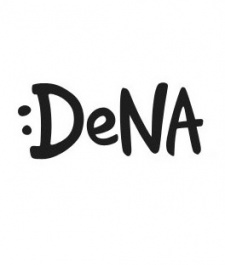How much more revenue would Rage of Bahamut be generating in the west if it was attached to an IP that draws crowds?
"Lets be honest, Rage of Bahamut doesn't exactly roll off the tongue," opened DeNA's Dan Morris at the start of his talk at this year's Game Developers Conference in San Francisco.
"So what we're starting to do is take the model we've put in place with Bahamut, and to start to spread it across our licensed games."
It's this combination of F2P games with high retention and monetisation with big IP that attracts the attention of consumers in an ever-crowded mobile marketplace that means, finally, the role of the licensed game is changing.
Looking back
"The history of licensed games have been fraught and uncertain," said Morris.
"Publishers used to think licenses would just deliver huge sales. There are a lot bad licensed games, a handful of decent games, and a bulk of kind of average games. And the model just didn't work."
Morris said that licensors would often find themselves alienated from the process, with little say on the games themselves. Their role, he suggested, was reduced to a chain of approvals, which often led to some "adversarial relationships" between publishers and license holders.
"It's just not a great model. You often couldn't actually measured the impact of the IP, either good games just tend to sell, bad games don't, whether they're attached to a license or not."
Things are changing, however. While it's believed Atari was once forced to drop scores of copies of its E.T game into a landfill in New Mexico, now big IP is valuable. Why? Because it helps solve mobile's biggest problem: discovery.
Changing times
The IP draws users in. Then developers can really go to town.
"What's changed is the free service model," added Morris.
"What we are learning is that if you can solve the discovery problem in mobile, and you can create a high retention live service that people want to stick to, you get results like Rage of Bahamut.
"What's more, in game events and on going game content are great opportunities for IP to link meaningfully to users."
Morris said F2P mobile licenses have the opportunity to create a "really beautiful synergy" that allows talented game devs to mine into an IP into a way that wasn't previously possible on console.
Games as live services can now exist over years, mirroring events in the IP's lifeline that bring its fans back again and again.
It's something DeNA is doing with its Hasbro, NFL and Marvel licenses. In the latter case Marvel: War of Heroes in-game events are going to be tied to key beats in the stories told in Marvel's comics, enabling the game to live on as long as the IP does.
"This model really satisfies those who really like the property the fans," concluded Morris. "It's a revolution in the way licenses work in gaming."
#GDC 2013: How F2P is lifting licensed games out of the landfill, by DeNA
Discovery meets retention and monetisation





















